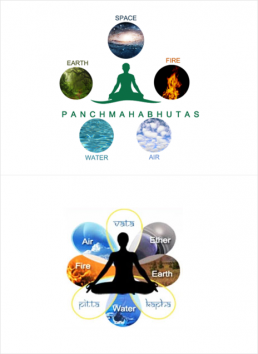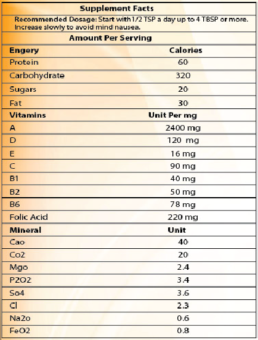
प्रयोजनं चास्य स्वस्थस्य स्वास्थ्यरक्षणमातुरस्य विकार प्रशमनंच||२६||
Prayojanaṃ cāsya svasthasya svāsthyarakṣaṇamāturasya
vikārapraśamanaṃ
The utility of Ayurveda is to maintain the health of a healthy individual
and heal the disease of the sick.


2. At Par with Allopathic medicines used for treating all diseases
3. Used for treating Autoimmune disorders and chronic illness
4. Can rejuvenate overall immunity
5. Can be used to create balanced diet and nutrition
6. Effective for burns and bruises
7. Much more effective than cosmetics
8. Used for detox of all body systems
Discovering The True YOU With Ayurveda
Ayurveda is a Sanskrit term, made up of the words “ayus” and “Veda.” “Ayus” means life, and “Veda” means knowledge or science. The term “Ayurveda” thus means “the knowledge of life” or “the science of life.” According to the ancient Ayurvedic scholar Charaka, “ayu” comprises the mind, body, senses and the soul. Widely regarded as the oldest form of healthcare in the world, Ayurveda is an intricate holistic “Whole body healing “medical system that originated in India thousands of years ago in India.
This ancient Eastern traditional medical system focuses on promoting OJAS (health and vitality) and preventing disease through creating balance in the mind, body and environment. One of the core philosophies in Ayurveda is that each person expresses a specific prakruti (mind-body constitution) comprised of energetic life forces referred to as doshas. Each person’s health is influenced by their innate proportion of these doshas and their current state of balance or vikruti (disequilibrium).


Philosophy of Prakruti & Vikruti
Our Body has an inbuilt mechanism to self-Heal as long as there is balance. Prakruti is our inner nature, while vikruti is our imbalanced current state. Imbalanced Prakruti becomes Vikruti so we need to consider both prakruti and vikruti in an Ayurvedic assessment.
Prakruti is determined by factors like our parents’ nature, as well as the circumstances of our birth, both emotional and physical state, the season, and location of our birthplace etc.
Vikruti is contributed by Genetic factors, bad food habits, repressed emotions, weak tissue and organ systemThis Imbalance is controlled by Elements we are made of and Doshas that govern the patterns of our metabolism.

Principle of Balance: Panchamabhuta & Dosha
Ayurveda is based on the basic principle of balance that states everything in this universe is an amalgamation of five elements:
Akasha (Space)
Vayu (Air)
Agni (Fire)
Jala (Water)
Prithivi (Earth)
And these five elements in turn are further represented in humans by three “Doshas”, or Bio energies and each dosha represents distinct bioenergetic principles and physiological processes:
Vata – Principle of Movement
Kapha – Principle of Structure
Pitta – Principle of transformation


When any of the Doshas accumulate in the body beyond the desirable limit, the body loses its balance. Every individual has a distinct balance, and our health and well-being depend on getting a right balance of the three doshas (“tridoshas”). The body is said to be “healthy” when these principles operate in harmony and it is said to be “diseased” when these factors get vitiated or imbalanced. Ayurveda suggests specific lifestyle, medication and nutritional guidelines to help individuals reduce the excess dosha.
We can thus conclude that Ayurveda is a system that uses the inherent principles of nature and our body’s amazing capacity of self-healing to help maintain health in a person by keeping the individual’s body, mind, and spirit in perfect equilibrium with nature.


